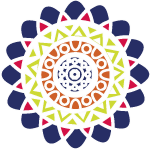In resilient teams, setbacks strengthen team cohesion and can lead to innovation as well as improved collaboration and results. However, when personalities clash and the going gets tough, it takes will, skill, tools, discipline and an open mind to take time to regroup, reframe and create a shift in energy. Awareness of distinctions in communication styles and related patterns of proactive and reactive engagement can stimulate constructive dialog, generate a new appreciation for individual differences as well as one’s own communication style, vitality and engagement.
Communication is a cornerstone in engagement. Communication is most commonly thought of as exchange of information such as a dialog with others. However, an equally important aspect of communication is our internal dialog. The stories we tell ourselves about ourselves and each other, impact our confidence and relationships as well as our vitality, performance and overall well-being. These stories influence our communication and how we engage and connect with others.
Differences in interpersonal communication styles can significantly influence collaboration, team productivity and cohesion. When people are aware of these differences, they are better equipped to be objective and distinguish between a discussion and the personalities involved.
The categories of the four Alpha Element Vitality Types offer an opportunity to reframe our inner dialog and engage with ourselves and others in a new way. By providing clear categories and a common language for differentiating between four styles of proactive and reactive engagement, the Alpha Element Vitality Types offer a new framework for understanding and connecting with self and others. As a team building tool, the framework of the Alpha Element Vitality Types can help teams create a new space for how to interpret, approach and leverage their differences.
The comments below illustrate new awareness of differences in engagement styles following Alpha Element team training:
As an organization as a whole Alpha Element training helps you look at team development knowing if you have different players on your team, where their focus is going to be and where their strengths are going to lie.
I would say the highest impact, at least for my team, is to think about how they interact with each other and how that self-learning lets you work with and interact with others in a more effective manner.



